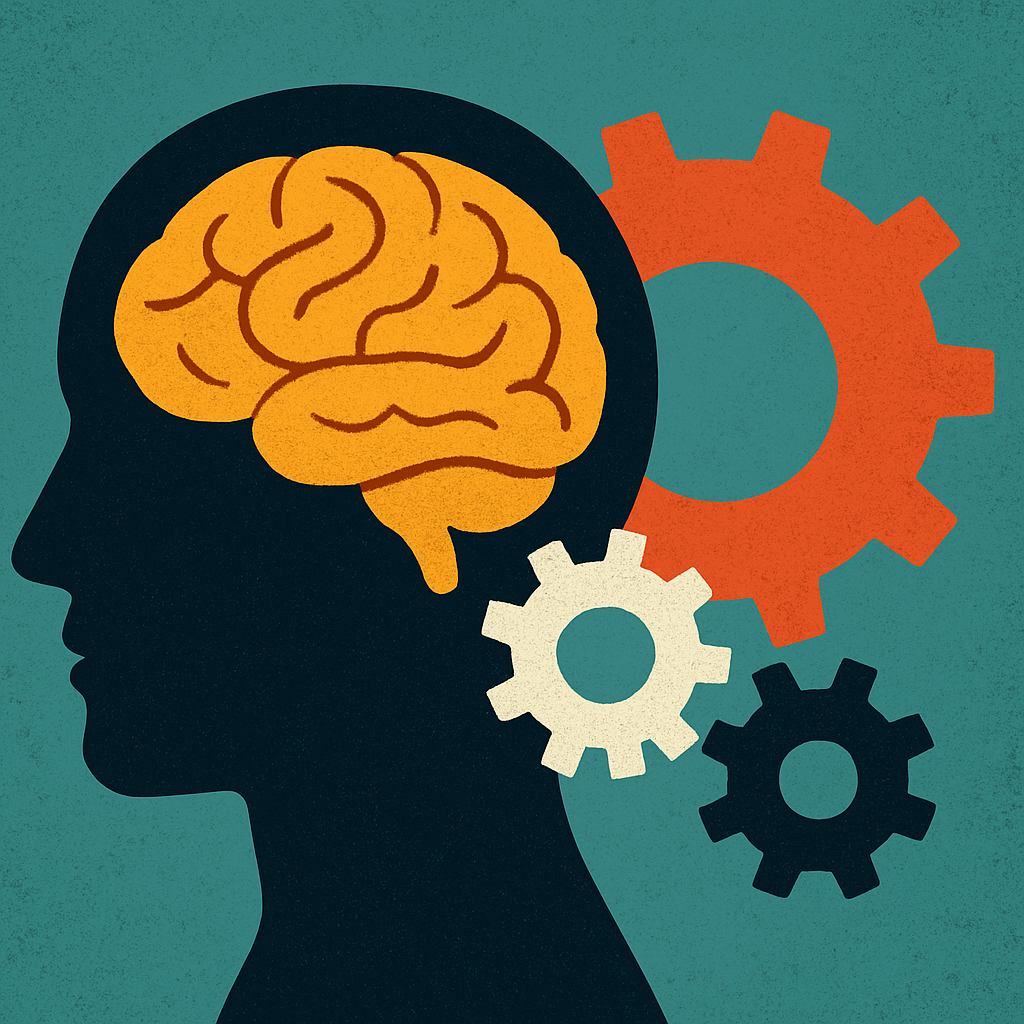The Final Frontier in a World of Artificial Intelligence
AI can accelerate your work, but only metacognition can transform your life. Here’s how the ability to “think about your thinking” became the single most impactful tool I ever introduced in 3,000+ hours of mentorship.

Everyone’s obsessed with the machine. The real advantage? Mastering the machine between your ears.
Each night, as I fed thousands of hours of teaching transcripts to my AI mirror, I was hunting for a silver bullet—a single technique or trick that explained why some sessions created breakthroughs while others fell flat.
But the AI didn’t find a silver bullet. It found a golden thread.
Woven through the best, most transformative conversations was a specific kind of dialogue—one that went beyond the subject matter. It was the moment a student stopped trying to solve the problem and started explaining how they were trying to solve it. The moment they called out a blind spot. The moment they questioned their own assumptions, out loud, without prompting.
That’s when I realized: this is the engine of all real learning. This is the signal in the noise.
It’s the most valuable skill nobody teaches in school, and it underpins every other. It has a name: Metacognition.
I. What Is Metacognition, Really?
Let’s bring this down to earth.
Metacognition is “thinking about your thinking.” It’s the difference between:
- The student who rushes through a problem, stuck in habits,
- And the one who pauses to ask, “Why did I make that mistake? Is there a better way?”
It’s self-awareness in action:
- The parent who catches their own stress before snapping at their kid.
- The student who realizes, “I’m just memorizing—I need to understand.”
- The teammate who asks, “Wait, are we solving the right problem?”
That’s metacognition.
II. How We Build It (and Why Most Don’t)
You can’t just “learn” metacognition from a book. Awareness is the start, but deliberate practice is what builds it. The conditions matter:
- Psychological safety: Honest reflection only happens when it’s safe to be wrong.
- Thinking out loud: There’s gold in sharing not just what you think, but how you think—your shortcuts, your models, your moments of insight.
- Modeling: Show your own process, especially your mistakes. Model pausing, self-correcting, trying again.
- Explicit language: Name it: “We’re building the skill of seeing how your mind works. This is the highest-leverage skill you can own.”
Real breakthroughs don’t just happen by finding the right answer—they happen when you see how you got there, and learn to build better paths next time.
III. Why This Is the Real AI Advantage
Here’s what almost everyone misses:
You can have all the AI tools in the world, but if you’re not aware of how you think, you’ll barely scratch the surface.
Picture this: A kitchen full of the finest equipment and ingredients. If you’ve never learned to cook, all that gear just helps you make a better burger—nothing more.
That’s how most people use AI: “Here’s what I know, now make it better.”
It’s like using GPS—liberating, but risky if you turn your brain off. Some end up in a lake, following directions blindly.
But metacognition keeps you at the wheel. It lets you question your assumptions, spot your tools’ limits, and ask better questions of yourself—and the machines.
That’s the difference between driver and passenger—online, at work, in life.
IV. The Ultimate Leverage
Most people never learn this skill. They run the same mental programs, year after year, wondering why nothing changes.
The greatest gift—especially for your kids, your team, yourself—is simple:
Unlock the mind.
This is the last unfair advantage. Once you have it, nobody can take it away.
V. The Takeaway
If you remember nothing else, remember this:
Metacognition—learning to notice and upgrade how you think—is the ultimate leverage.
It multiplies the value of every tool, every lesson, every challenge.
Build it in yourself.
Teach it to your kids.
Spread it in your team.
It’s the only skill that compounds for life.
VI. Try This: The Awareness Audit
Here’s your challenge for the week:
Pick a challenge.
Work, parenting, learning—anything that matters.
Pause mid-task.
Ask yourself:
- What am I trying to do right now?
- How am I approaching it?
- Is there a better way?
Notice your patterns.
Are you rushing? Avoiding? Guessing?
Just notice—no judgment.
Write down one insight.
What did you see about your thinking that you missed before?
Share the audit.
Do this with someone else—your partner, your kid, your team. Compare notes.
Do this once a day for a week.
You’ll start to see the invisible architecture of your mind.
And once you see it, you can start to shape it.
In a world obsessed with artificial intelligence, the highest ROI is still human intelligence—metacognition.
And that’s the signal in the noise. Go forth and build.
About the Author
Matt Starolis is the founder of Engineering Confidence, a transformative mentorship practice built on over 3,000 hours of one-to-one mentorship and nearly 1,000 hours of AI-driven analysis. His work is dedicated to helping ambitious learners—and their families—build lives defined by clarity, resilience, and earned confidence.
